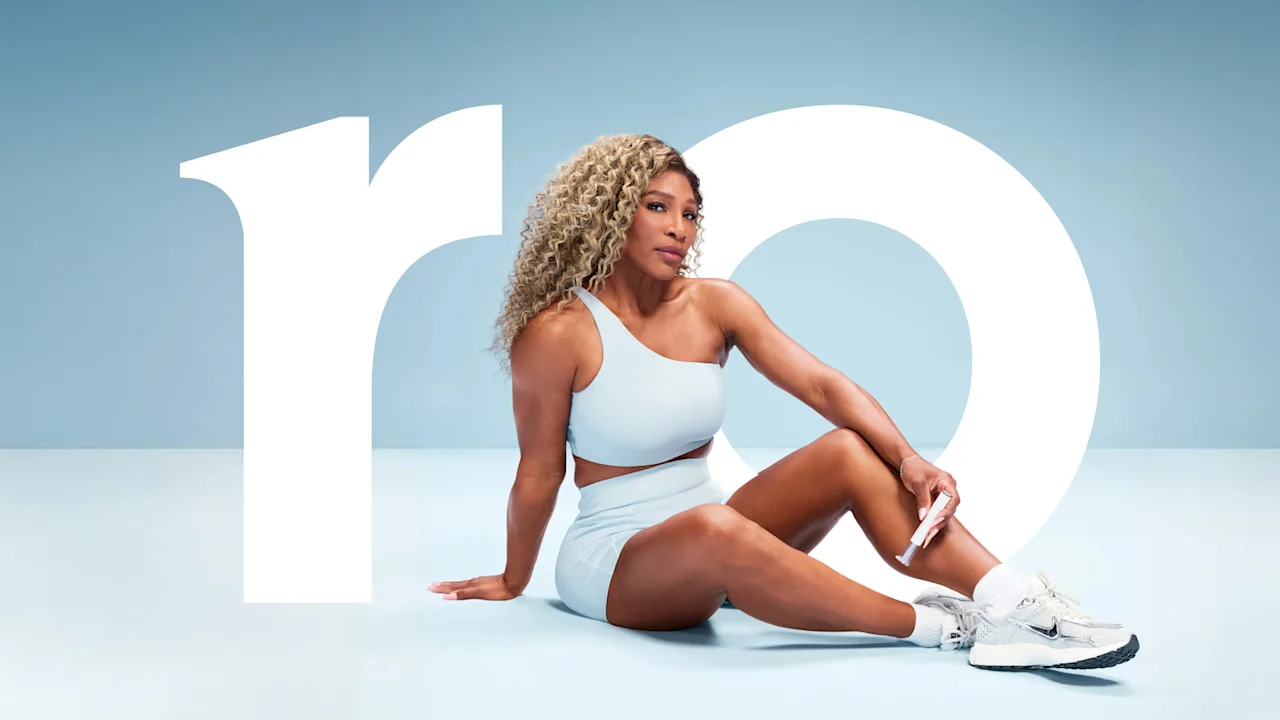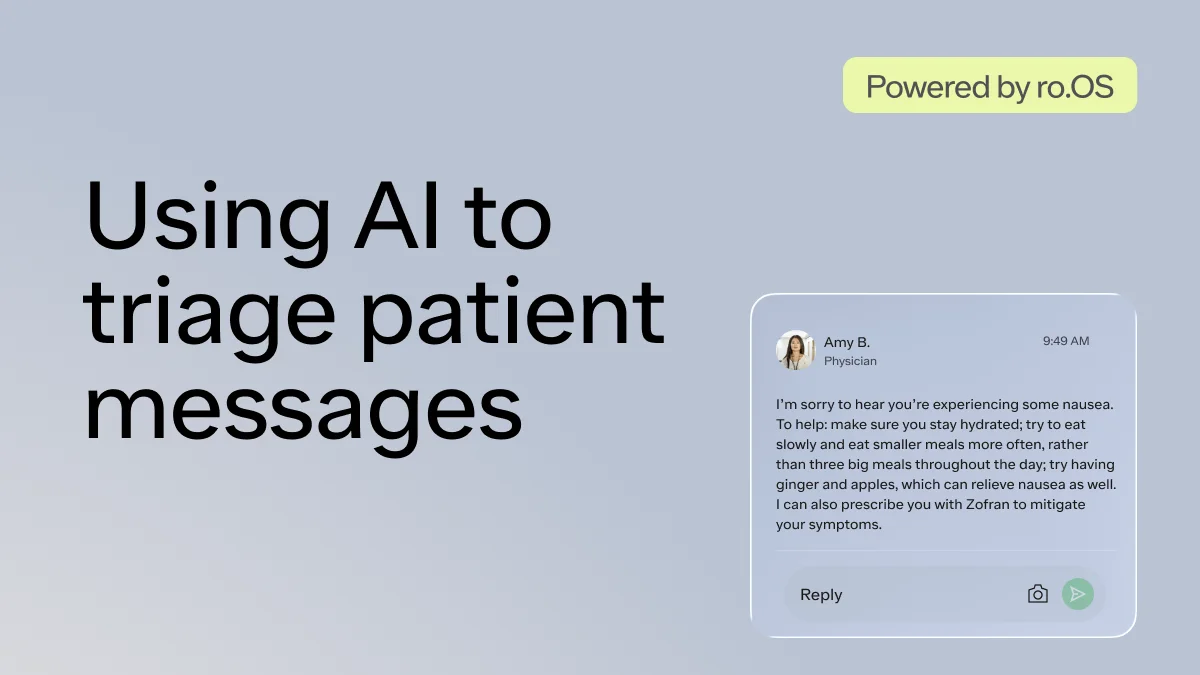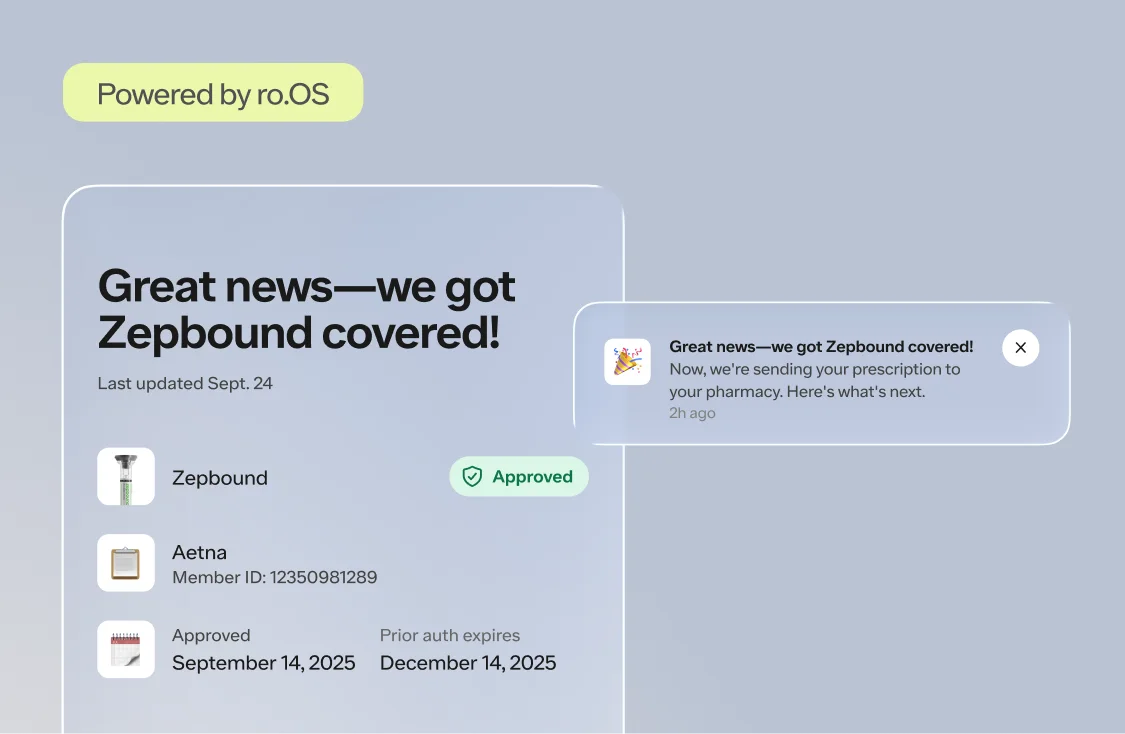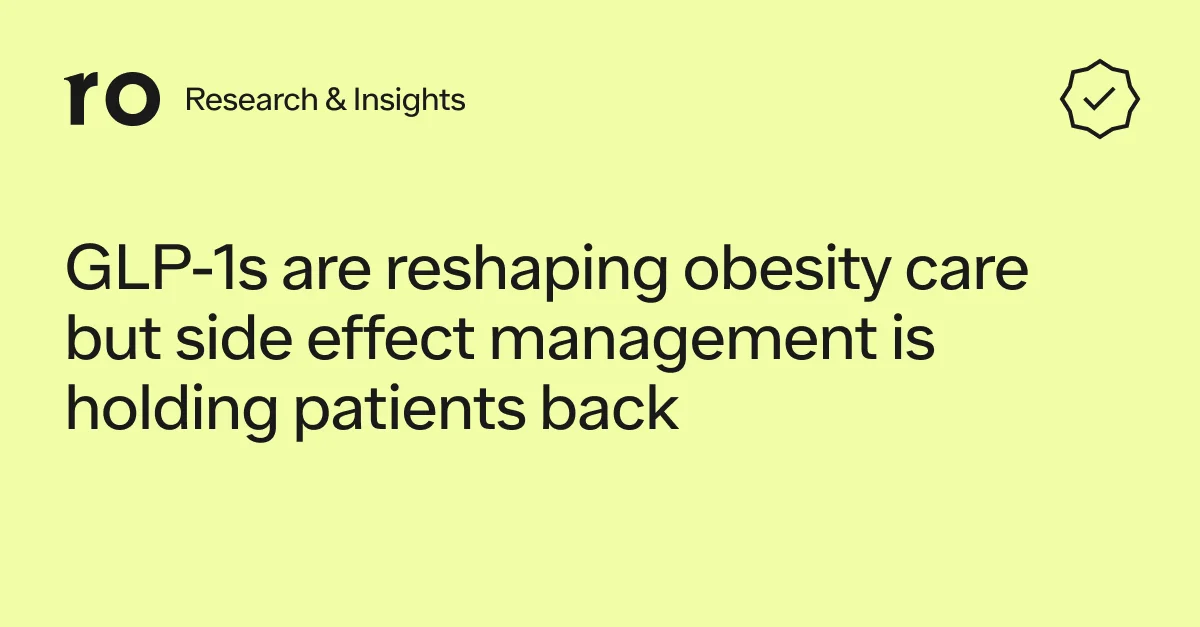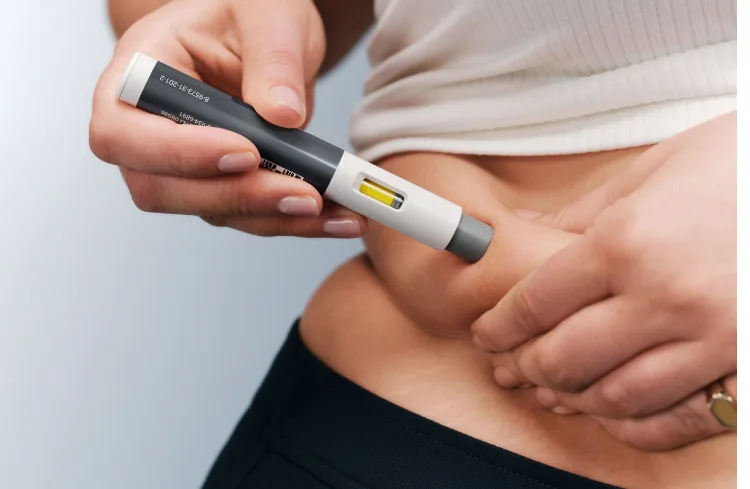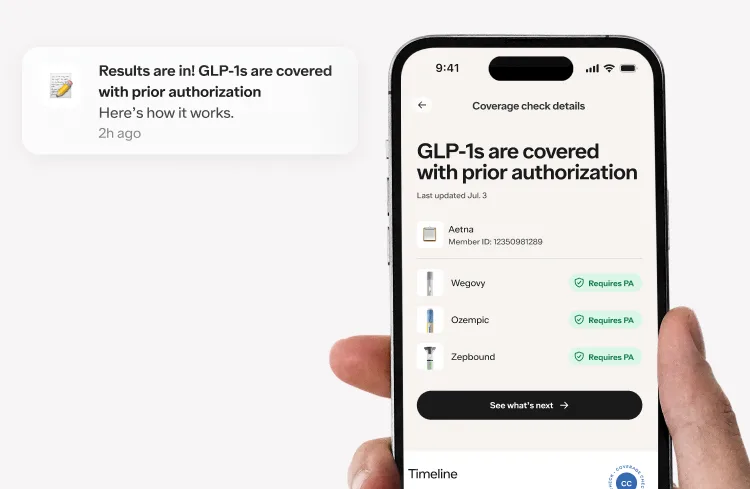Here's what we'll cover
Here's what we'll cover
Here's what we'll cover
When I tell people I co-founded a men’s health company, their first reaction is “Why?”
When I then tell them our first product will help treat men who experience erectile dysfunction, their reaction is silence.
I can see their mind churning. Why men’s health? Why erectile dysfunction? Why you? Frankly, I don’t blame them. On the surface, I appear to be a healthy 26 year-old male trying to solve a problem they associate with rich, old men. Based on what is commonly (mis)understood about the topic, their surprised silence is understandable.
However, their reaction — which is based on so much misinformation — has only served as a potent reminder to our team of why our work is so important.
Let me share our story with you and you will understand why my co-founders and I have decided to devote our lives to solving this problem.
What do I know?
When I was 17, I experienced erectile dysfunction. It was unusual for someone my age to have difficulty getting an erection, especially since it had a medical and not a psychological cause. Yet, in more ways then I knew, what I would experience in the following year happens all too frequently to men at every age.
My reaction was absolute confusion and frustration. I had been like most young men; a light breeze would send me calculating square roots to fend off the consequences of my adolescent mind. But that was no longer necessary since my usual, youthful responses were somewhat blunted, to say the least. Something was wrong and I knew it.
It’s hard to talk about erectile dysfunction at any age and I realized that there was not a single person to whom I could speak other than my father. I know that sounds odd; hang in there for a second.
My father is a physician and an expert in sexual health. That was a lucky break, one few people get. Growing up, very few things were off limits at the dinner table. So, I finally brought it up, and when I say ‘finally’ I mean as long as a boy can wait when something might be wrong with his penis.
He asked me a few questions that seemed to be related to whether I was depressed or stressed. He touched on drug use and a few other things. But after a few minutes he reassured me and said, “Well, it’s not in your head and I don’t want you to worry. We can fix this.” But I’d seen that look before when my sister was ill. He was concerned.
The next time we were exercising together, he came up and said, “Hey Z, can I take your pulse?” I stuck out my arm and he held my wrist and closed his eyes. I assumed he was just counting away as I kept running. I had kept my pace slow thinking it would help him count, but it seemed like forever, so I decide to kick it up a notch.
After about 10 minutes, he asked me to step off the treadmill. There was that face again. He stayed calm — he is well-trained — but he knew something wasn’t right. He scheduled a stress test for the following week. (In a stress test, you exercise in front a physician as they monitor your heart; the treadmill gets steeper and faster every three minutes.)
I remember walking into the doctor’s office and passing a waiting room full of men in their 50’s and 60’s. Looking back on it now, I should have suspected it was a bad sign that men who had as many years left as I had lived were taking the same test. Anyway, at the time, I felt pretty confident I was going to crush it. It’s amazing how naive you are at 17.
I hop on and start walking. Minute 3 hits and I’m doing great. Minute 6 passes by and I’m having a good time. Naive and cocky. Minute 9 and I am barely breaking a sweat. Minute 12 and I kick it just to show off. Dumb move. The last thing I saw was the EKG monitor go nuts and the last thing I remember hearing was my doctor yell for help. My heart stopped.
They brought me back. Before I knew it, I was in the hospital for an ablation procedure to burn the parts of my heart that were causing it to do something it shouldn’t.
I was on the mend. My erectile dysfunction, while surprising and confusing, was more an indicator of larger heart issues. I thought, “I get it. I’m even appreciative of it. I’ll exercise, eat right, and be aware of my heart condition. I’ll take whatever medicine the doctors tell me.”
And then I found out that my medication, had a series of side effects, one of which I was unfortunately already familiar with: erectile dysfunction.
I was pissed. I even briefly considered doing something extraordinarily stupid like stopping my medication. I think if it were anything but my heart I would have.
Unfortunately, it took more than one embarrassing experience before I brought it up again to my dad. He was able to help me.
I never told anyone about my experience, not even my partners.
Why start this now?
This past February, I started to experience heart symptoms again. It was like deja vu. I saw doctor after doctor. I had lab tests, wore a holter monitor for weeks, and even managed to finish a stress test standing upright.
After all those doctors appointments, I had some good news: I wouldn’t need another procedure. The bad news was that I was prescribed the same exact medication again. I thought to myself, “You’ve got to be fucking kidding me. ”

It was almost funny. I remember the moment the doctor told me. It was reminiscent of one of those silly movie scenes where one character says something that takes the other back and everything after is just a dull drone. I had an expert physician by my side every step of the way, the best care you can imagine, read everything there is to know about my heart condition and ED, and I still felt overwhelmed.
At the same time, my co-founders Rob Schutz and Saman Rahmanian were about to have their second and fourth child, respectively. Through the process, Saman and Rob had realized they had not had a checkup in over 5 years.
Their wives saw doctors they had known for a long time. They drew blood tests checking for things like diabetes or high cholesterol, asked them about their family history, whether they smoked or drank to excess, and generally just how they were feeling. Their wives had been great partners by taking care of their health. Rob and Saman definitely had aches and pains but, as is commonly the case, they ignored them. They knew they could and should be taking better care of themselves to be the best husband, father and son possible.

In retrospect, it seems obvious why we decided to pursue Men’s Health. I was walking into the office every day with wires strapped to my chest while my friends, about to bring new life into the world, were confronting their own mortality.
We all wanted to be there for our loved ones.
The more we read, the more we realized how horrible men are at taking care of their health. On average, men die 5 years earlier and visit the doctor half as frequently as women. Scientists estimate that maybe one year can be attributed to biology but the remaining four are most likely “hold my beer and watch this” crap. Stupid machismo. Following advice from your high school gym teacher: “rub some dirt on it and walk it off.”
The problem was we didn’t know where to start. We knew we couldn’t tackle all of Men’s Health from Day 1. We have all started companies before and know that maniacal focus is vital to success.
We would never make it to point C if we didn’t first go from point A to point B.
The day after my being told I needed medicine again, Saman, Rob, and I were jamming. I brought up the idea of starting our men’s health company with ED.
Initially, they had the same reaction that some of you might. “No way.” “What does that have to do with men’s health?” “You mean you want to build Harry’s for Viagra?”
Against my initial impulse of embarrassment, I shared my experience with them. It was the first time I had ever shared it with anyone other than a doctor. They were incredible. They listened, asked questions, and even shared some of their own hurdles with partners, challenges conceiving, and voiced some general health concerns.
Don’t get me wrong, one conversation about my penis did not determine our product roadmap. But, it was enough to pique the team’s interest that this may be a problem worth solving.
What followed next (other than a set of popup ads that would make any person truly loathe the internet) is what convinced us this what we wanted to work on.
The check engine light

Erectile dysfunction, or even a diminished erection (it’s not binary), is a man’s equivalent to a car’s check engine light.
We’ve all been driving and have seen that check engine light come on. We continue to drive but eventually something is going to go wrong. Now, the worst that happens with your car is you have to pull over and call AAA. In my case, the worst that could have happened is that I could have been playing basketball and dropped dead right on the court instead of at the doctor’s office.
Why is erectile dysfunction a man’s check engine light? A strong erection requires so many different systems of your body to be working in perfect harmony.
For starters, your hormones must be released on demand, your arteries need to carry blood to the penis with perfect efficiency, your nervous system must transmit its signals without a hitch, and your mind and your body need to be in sync.
That’s a lot to ask of your body on-demand and in pressure situations.
But, it’s also more than that. The blood vessels of your penis are relatively small, which means that they reveal any change in their ability to do their job, compared to the larger blood vessels in your heart.
In other words, far more serious underlying conditions reveal themselves with a diminished erection!
ED can be a sign of diabetes, heart disease, high cholesterol, high blood pressure, obesity, or depression.
As funny as it sounds, a diminished erection could actually be the first visually recognizable sign that something is off.
But how big is this problem, really?
Here is where our preconceived notions of ED were shattered. Originally, I thought my experience was rare. I couldn’t imagine other people as young as me were experiencing a similar challenge. I watch football and I had seen the advertisements on TV — the guy throwing the football through the tire swing, the guy fixing his car, and the older couple in the bathtubs (wtf).
But we were wrong. ED is not something faced just by old guys. Far from it.
Over 52% of men experience some form of ED. And no, it’s not 100% of guys over 60.
It turns out 20% of men in their 20s, 30% in their 30s, 40% in their 40s, and so on, experience ED.

It’s approximately 30 million men. To put that number in context, it’s the same number of people with diabetes. This is not a coincidence.
But if so many people experience the issue, why don’t you hear more about it?
Stigmas are lethal
The stigma is real. Only 18–30% of men who experience ED receive treatment.
Meaning, approximately 24 million men are covering up their check engine light, the earliest possible sign that something much worse might be brewing, because of societal pressures.
Worse yet, not only do men wait, they try to solve the problem without talking to a doctor.
80% of all Viagra purchased online is counterfeit and it contains things like printer ink, paint, and floor wax. Imagine the situation you would have to be in for you to put that in your body, for you to feel that this is your “best” option.
And it reaches beyond fake medication. I mentioned before I had considered going off my medication to avoid the issue all together — yes, I’m aware that that’s a terrible solution — and I’m not alone here either. It’s one of leading reasons men stop taking their depression medication.
The issue is that when people think of ED, they don’t think of the cause.
Take this example.

In late July, many were outraged when they found out the U.S. Military spent 85 million dollars on Viagra in a single year. Taken at face value, this number might seem shocking — but not if we dig one level deeper.
Soldiers are brave enough to bear the nightmarish burdens that come with risking and seeing death in some of the most dangerous places in the world. Not unexpectedly, when they return, some of them experience PTSD. 85% of men who experience PTSD also experience erectile problems. Imagine the pain those men feel when their suffering results in a loss of intimacy and then is diminished by a culture that mocks attempts to alleviate their isolation and sadness.
So, when you hear about ED or Viagra, I do not want you to think about sex. I want you to think about PTSD, Diabetes, Heart Disease, High Cholesterol, High Blood Pressure, Obesity, and Depression.
I want you to think of the leading causes of death in the United States. And then I want you to think of what happens when we create a culture that mocks the management of the earliest possible sign of something far more dangerous.
But do we need another company built by men for men?
As I’ve started to share Roman with friends, some of them asked, “I understand it’s a health issue, but aren’t you still just solving a problem for half the population?”
As odd as this might sound, the question did not cross my mind until it was asked. Not because it was something I “overlooked” but because my personal experience with ED affected me and my partner equally. It was a challenge we solved collaboratively and she never, not once, made me feel as if it was something I was facing alone.
When I raised the issue with her, we noticed that the higher level themes of our conversation sounded very similar to our conversations about birth control. Solving the issue of affordable access to birth control should not be an issue faced exclusively by women. Men and women both need to fight so that women are able to have access.
Fortunately, only one of us has had serious health issues but I’d like to believe that if she faced an issue, whether it affected me in the way mine has her or not, I’d care for her with all my might. We are a team.

Aren't you just treating the symptom?
There are two problems. First, someone is unable to be intimate with their partner. Second, someone can improve their physiological or psychological health.
Roman approaches both, simultaneously.
At Roman, we look at the problem in it’s entirety and not simply the solution. From our perspective, there are two great days in a patient’s life:
The day they receive treatment and are now able to be be intimate with their partner.
The day they no longer need it.
This drives everything we do.
Day #1: Intimacy
ED medication is like a knee brace. It does not fix your knee but it might enable you to walk or run. It’s not an ideal experience either. It costs money you need to use it before every single time you run; and you’d rather not need it. But, until your knee is healed, a brace allows you to continue an important aspect of your life. Walking.
Day #2: Overall health
We’ve taken so many steps to be an important part of our patient’s care and we’re just getting started.
1. Roman patients can speak with an expert in Men’s and Sexual Health via secure messenger, chat, or video whenever they want.
2. Roman provides personalized Treatment Plans emphasizing the risks and benefits of the medication (including not taking it) and easy steps on how to improve your overall health.
3. Roman can order a blood test (highly recommended) and analyze the results to start the process of identifying underlying causes.
4. Roman will discount its services if patients visit the physician in person and forward us the results. As my mom would say, get your tushi to the doctor!
5. Roman will seamlessly forward all of your information to your other healthcare providers so they are in the loop. We are a complement to all the healthcare options patients must utilize to optimize their health.
Great, but what about recreational use?
I cannot tell you how many times I’ve heard men tell me, “I take Viagra recreationally. I don’t need it, but I use it every time I have sex.” I usually nod, smile politely, and ask them to read our educational material.
Let me explain.
ED medication cannot give you an erection beyond 100%. For example, if a perfectly healthy 18 year old boy took a Viagra (I do not recommend this!), they probably wouldn’t notice the difference. If someone consistently uses medication, and experiences a noticeable and beneficial difference, their erection was previously not at full strength.
As you imagine, I am reluctant to tell someone in open company they’re not at 100%. Frankly, it’s irrelevant. The goal is not to be at 100%. The goal is to be able to achieve and maintain an erection that is satisfying enough for you and your partner. This is an incredibly personal decision and it’s also subjective.
Someone at 50%, while they should definitely focus on their overall health, might not be a good fit for medication if they and their partner are completely satisfied. Conversely, someone at 65% could be a great candidate for ED treatment, depending on their needs, current social circumstances, and health. It depends on the individual.
It is important to acknowledge that there are some healthy individuals who will use medication to combat the affects of alcohol or other recreational drugs. This is a group of people Roman cannot help. Also, and most importantly, the combination of alcohol and ED medication is potentially very dangerous. Don’t do it.
So your're going to treat ED, then what?
First, Roman will strive to be the easiest, safest, and most affordable way to receive treatment for erectile dysfunction. If we don’t accomplish this, we will never be able to do anything else.

If we are fortunate to take the first step, we will look to our members. Roman exists to serve our members. The data shows that many conditions are highly correlated with ED but we don’t yet know which conditions our patients most need us to help them treat. We will progress adaptively and continue to be an important part of their healthcare journey.
Where can I learn more about Roman
Wow, thanks for making it all the way through. If you’re interested in learning more about Roman, head on over to GetRoman.com
